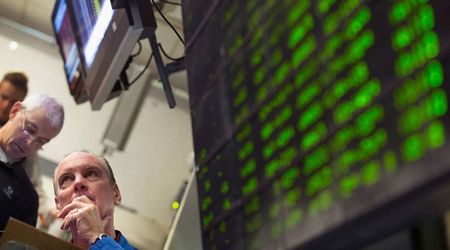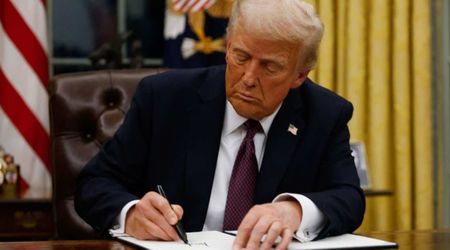The price of beef has surged under Trump's presidency — and tariffs are to be blamed

President Donald Trump's policies have also disrupted the everyday lives of Americans by triggering a surge in prices. Beef is also one of those things that people are paying a higher amount for. While he blames the meat packers and U.S. cattlemen for the rising prices, a CNBC report suggests that the tariffs on beef from countries like Brazil, Australia, New Zealand, Uruguay, and the tariffs on feed, farm equipment, and machinery are behind the price surge. While the president has touted a new deal with the Latin countries that may ease food prices, the details of it are unclear.

According to the latest consumer price index report from the Bureau of Labor Statistics for the month of September, the prices of various uncooked beef products increased year over year between 12% and 18%. Furthermore, the tariffs on feed and equipment have caused trouble for the local cattlemen at a time when the U.S. cattle herd is at a 75-year low amidst a drought. CNBC reported that cattle ranchers have faced difficulties in increasing their herd as the amount of grasslands to feed them has reduced, and the tariffs have made buying feed costlier. On top of it, some imported fertilizers have faced double-digit tariffs, which in turn have increased the cost of producing crops like corn and soybeans, which are used in animal feed.

“We’re in one of the toughest cattle cycles in history. We have the smallest pipeline of future cattle, and even with today’s prices, ranchers can’t speed up the process to rebuild the national herd, which will take time, grass, and rain,” sixth-generation Texas rancher James Clement III shared with the publication.
After President Trump slapped multiple tariffs on the beef-exporting countries, the cost of beef produced outside of the U.S. has gone up sharply, and the supply has diminished. Exports from Brazil, the world's largest beef-exporting country, plummeted in July-August after multiple tariffs led to a layered 76.4% total rate, according to Panjiva. The Trump administration slapped a 50% tariff on Brazilian goods in July, and following the beef exports from the country, diverted them to other markets like China.

Other top beef exporters, including Australia, New Zealand, and Uruguay, have also pulled back as a result of the tariffs, putting more pressure on the U.S. beef supply chain. “When you impose an extra 50% tariff on a major supplier like Brazil, importers may keep buying and pass costs along, or they may stop buying, but that means less supply to meet the demand. Either way, you expect prices to go up," Dan Anthony, president of economic research firm Trade Partnership Worldwide, told the publication
On Thursday, the Trump Administration announced that it was considering tariff exemptions on imported food products, including beef and citrus products, to ease prices. The White House announced that it was closing in on new trade agreements with four South and Central American countries, which could lead to lower duties on beef from Argentina, The Politico reported. “These are exactly the kind of deals the president is trying to strike to help balance out our trade deficits,” said a senior administration official, according to the publication.
The official deal is expected to exempt beef imported from Argentina from the 10% tariffs on its imports.
More on Market Realist:
Leading bank breaks down just how much Trump’s trade policies is costing Americans
US Supreme Court can stop Trump's tariffs from ruining your Christmas — here's how
Your favorite pasta brands could disappear from grocery stores as Trump plans 107% import tax




















